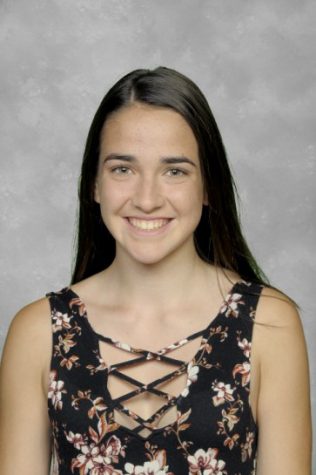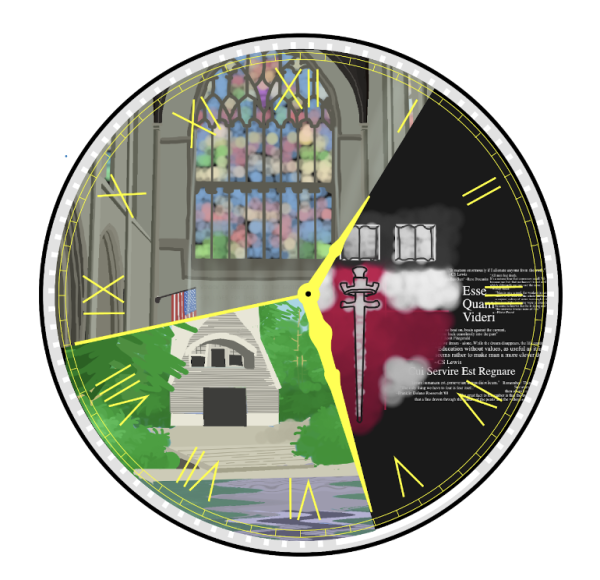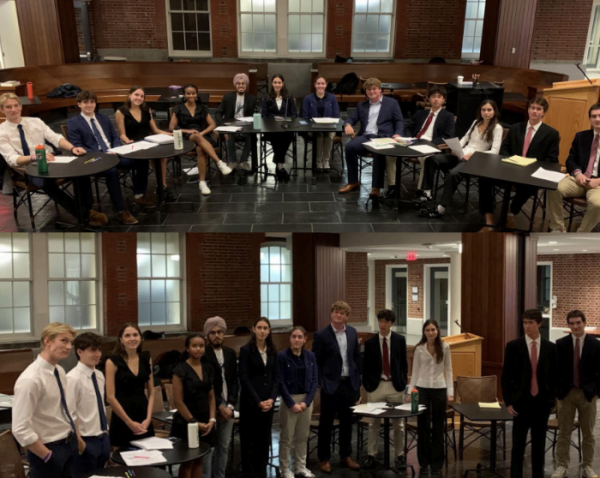The College Office and Class Selection
The College Office, located in the Schoolhouse basement behind the Dean’s Office, is a mysterious entity to students before they reach Upper School. Although most students understand that college counselors help fifth and sixth formers through the college process, many lower schoolers are unsure of the particulars of college counselors’ jobs – perhaps most importantly, whether they’ll be able to take the courses they want to.
Aside from helping students find schools that are right for them and forming standardized testing plans, one of the major tasks of the College Office is to recommend classes for students. Their primary goal is to “balance rigor and performance,” says Director of College Counseling Megan Harlan. She says of the College Office, “we want you to take challenging classes, but still be able to have a life and be happy.” Since lower schoolers have less choice in classes, the class selection process happens in the spring term of fourth form, and again in fifth form winter. These two meetings, says Ms. Harlan, “allow students to grow and change, and switch to a different path if they decide they don’t like the track they’re on.”
Julien Alam ’19 feels that he was able to pursue his passions. “For me at least,” he says, “they said ‘you’re a humanities kid. Just run with that.’” But he acknowledged that he had taken seven classes the previous year to complete his requirements, which may have contributed to the freedom to take courses he wanted to.
Other students, especially those uninterested in math or science, seem to have a different perspective. Becky Zhang ’18 says “if you’re a classics person, they will really push you towards STEM classes. They made me take a science class this year.” Michael Xiao ’18 argues that the problem is not universal: “It really depends on your counselor. Some will push you to take STEM classes, but some will just encourage you to do what you want to do.”
When asked about pushing students to take STEM courses, Ms. Harlan responds, “we really try to accommodate the pursuit of individual interests, but our main job is to help students make educated decisions.” The push for students to take science courses, she says, only feels unusual because Groton’s science requirement of one year in the Upper School is low among peer schools. (St. Paul’s, for example, requires three years of lab science. Brooks and Middlesex only require two, but strongly recommend three.) “We don’t want students finding a school they really want to attend in their Sixth Form year, and not being able to apply because they don’t meet the requirements,” Ms. Harlan says.
Many colleges popular among Groton students have such requirements. While Georgetown only requires one year of science unless a student plans to concentrate in math or science, Bowdoin strongly recommends at least three and Harvard recommends four. All three of these schools rank in the top five matriculations of Groton students between 2013 and 2017.
The College Office can sound intimidating, but they really are there to help students out. Trying to strike a balance between performance, rigor, individual interests and requirements can be difficult. As the Office’s mission statement says, the process is ultimately “an opportunity for personal growth, self-reflection, and self-discovery.





